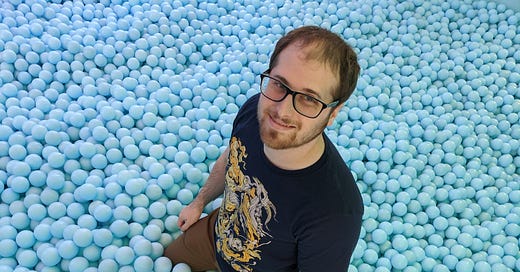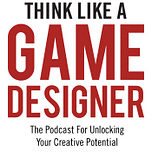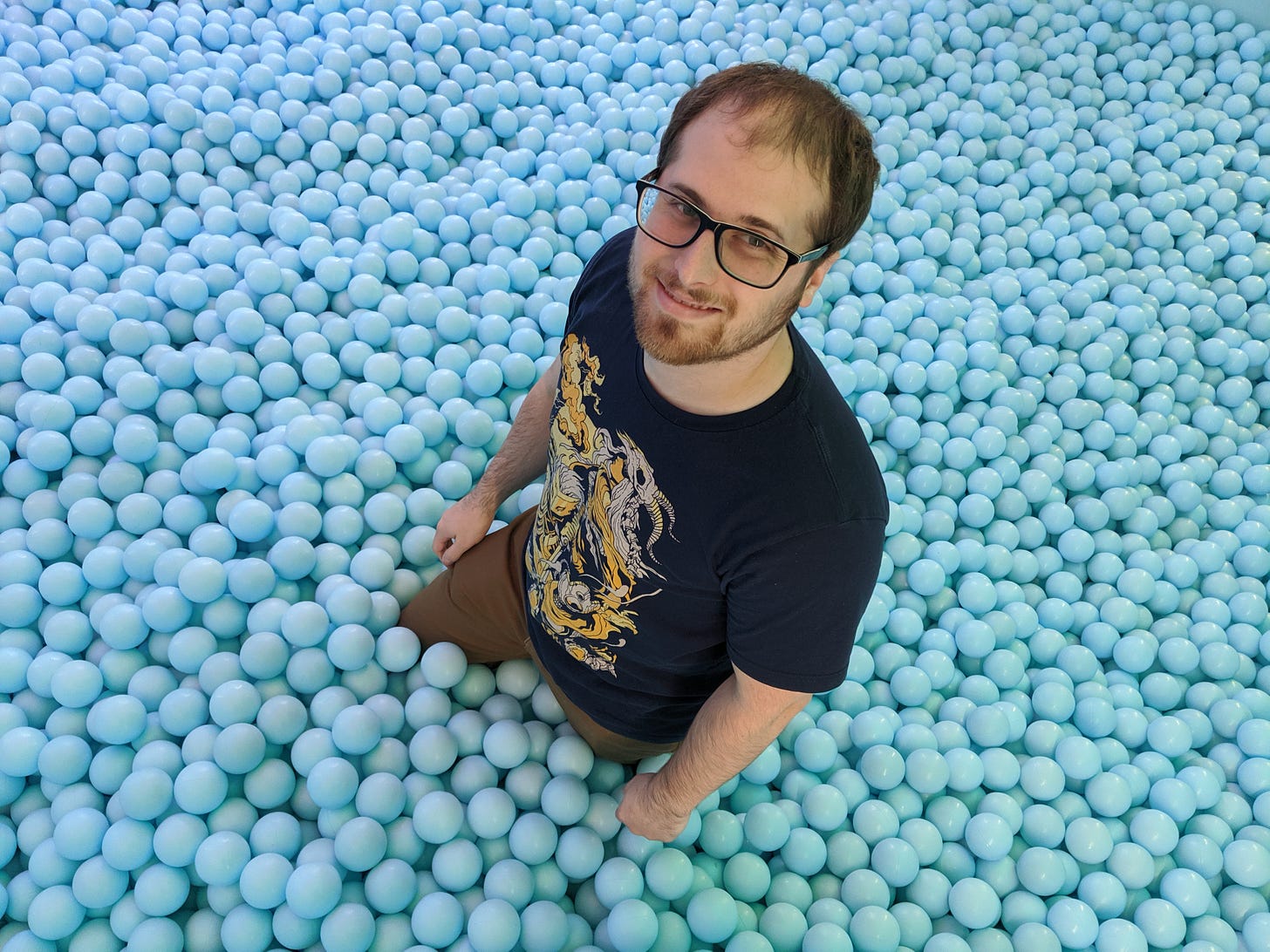This episode is stand-alone, but if you’d like to hear more about the Mega Crit team behind Slay the Spire, check out last week’s episode, too!
About Anthony Giovannetti
Anthony Giovannetti, the co-creator of "Slay the Spire" and a pioneer in digital deck-building games, joins us for a discussion following our episode with his design partner, Casey Yano. He delves into their early days of game development, emphasizing the importance of completing and learning from projects, regardless of the outcome. Anthony also reflects on balancing work and life during the intense launch of Slay the Spire and discusses the positive impact of embracing fan-made mods like Downfall, which significantly boosted the game's popularity and sales. I highly recommend listening to Anthony’s episode along with Casey’s to glean every bit of wisdom from this incredible design team. Having Anthony on the Think Like A Game Designer Podcast was an absolute blast—enjoy!
Ah-ha! Justin’s Takeaways
Playtest more than you think you think is necessary. The importance of playtesting and engaging with real players cannot be overstated. Regular interaction with real players is irreplaceable for refining games. This principle, although one I frequently teach, is also one I regularly need to remind myself to practice.
Community Building for Indy Digital Games. With a background in tabletop games, I recognize the significance of community building. However, creating thriving online communities, especially on a limited budget, is still a huge challenge. Building community spaces in places like Discord, engaging with fans, using regular updates as a way to show engagement, and empowering modders and community creators are all critical tools. You’ll no doubt see these tools applied during our upcoming release of SolForge Fusion Digital.
Find partners that complement you and critique you. Collaborating with individuals who both complement and challenge you is invaluable. Effective partnerships are formed when each member contributes their unique strengths and viewpoints, creating an environment where critical feedback is exchanged without personal offense. Partnerships, such as Casey and Anthony’s, where differing skills and perspectives lead to productive collaboration and occasional healthy conflict, are immensely beneficial for making the most of a creative endeavor.
Paying subscribers enjoy an abundance of extra game design content and an additional exclusive newsletter with new lessons, archive access, videos, and more! Get the latest articles delivered to your inbox and contribute to our community by subscribing.
Show Notes
Releasing Games Into The Wild (00:03:23 - 00:15:30)
“It’s good to make something and then have it kind of suck. […] We learned a lot about finishing something, even if it’s just finishing something bad.”
Anthony begins by sharing the story of his initial game projects with Casey Yano, detailing their journey from inception to release. He describes the motivation behind their creations and how the gaming community received them. He emphasizes the value of completing a project, regardless of its perfection, underscoring this milestone as a crucial step in their evolution as game designers.
We also dig into how Anthony's experience as a game store employee taught him effective approaches to demoing games due to the necessity of teaching a variety of game rules repeatedly. He highlights that the most critical skill acquired was addressing people's uncertainties regarding a game’s rules. These insights proved invaluable during the playtesting phase of "Slay the Spire."
Keys to Successful Playtesting (00:15:30 - 00:29:20)
“Playtest more than you think you need to.”
Anthony describes his process for playtesting for the hit game Slay the Spire. He highlights utilizing local indie game events and online platforms like Discord. Our conversation emphasizes the significance of identifying communities for playtesting, whether it involves seeking them out or leveraging networks you are already a part of. We talk about what “playtesting more than you think you need to” means and how to use the feedback you get from playtesters. We go on to discuss the intricacies of the Slay the Spire launch, contrasting it with Casey Yano’s story from the previous episode.
The Life-Work Balance (00:29:20 - 00:42:30)
“I think just actually taking the time to enjoy myself and taking the time to slow down actually helps to keep things more balanced.”
In this discussion, we explore why they decided to halt content production for 'Slay the Spire.' He details the severe burnout he and Casey faced during the game's release period, where they were overwhelmed by 80-hour work weeks, and this intense period led them to shift towards new creative projects. To support this change, they expanded their team, bringing in fresh talent and laying the groundwork for a more structured company. Building the company gave them the necessary space to relax, regroup, and rejuvenate their creativity. Currently, they are navigating the challenges and opportunities of scaling their company, a journey that involves significant planning and adaptation.
Building the Slay the Spire Experience (00:42:30 - 01:07:00)
“The core design of Slay the Spire is risk versus reward.”
In this segment, we discuss the game design of Slay the Spire, covering everything from the card system to the map layouts and the depth of decision-making involved. Anthony shares what they did to avoid becoming tedious, incorporating positive and negative outcomes for various choices. He highlights the challenges of managing randomness in gameplay while ensuring the player experience is as addictive as it is fun.
Additionally, my new game, SolForge Fusion, will be released in beta in early 2024. My love for Anthony and Casey’s game, Slay the Spire, inspired a new campaign mode in the game. In this segment, I ask for advice from one of the pioneers within this game space. We discuss the cadence of upgrades, treasures, and fights during a Slay the Spire run.
Fan-Made Mods (01:07:00 - 1:16:59)
“We’ve done everything we could to encourage modders.”
Anthony explains the value of embracing modders' creativity in their game. He highlights how Slay the Spire's fan-made mod, Downfall, boosted the game's popularity among streamers and ramped up community engagement and, ultimately, sales. The best part? It was all achieved with zero effort from their side!
















Share this post